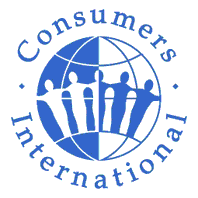 The last few weeks have seen a torrent of e-mails flowing back and forth as members of the ISO's working group on Social Responsibility (of which I am a part) work on the first draft of the Guidance on Social Responsibility and prepare for the next meeting in Lisbon in May. The lion's share of the work is occurring in three different task groups. A brief summary of this work appears below along with my own commentary on some of the challenges facing the different task groups going forward.Task Group 4 - TG4 is responsible for drafting the scope, social responsibility context, and social responsibility principles relevant for organizations. The principles section is a key section to the standard since the principles set out the guidance and direction to affect an organization's overall decision-making and activities. Some believe that the principles section should include both substantive principles derived from instruments of inter-governmental bodies (i.e. UN Global Compact's 10 principles) as well as procedural-oriented principles such as transparency, accountability, respect for rule of law and the value of stakeholder engagement and continual improvement in social responsibility practices. TG4 Challenges: Struggle to find a comprehensive definition for social responsibility that applies to all organizationsTask Group 5 - TG5 is responsibile for drafting text on core SR subjects and issues guidance. The core subjects should derive from the principles and are the actionable practices/areas towards the organization should direct its implementation efforts. While it is up to the organization to determine the exact scope and nature of its SR programs and initiatives, an initial listing of issues areas might include: Governance, Human Rights, Natural Environment, Workplace Environment, Community, Operational Fairness, Responsible Products and Services. TG5 Challenges: Finding issue areas that are relevant for public, private and civil society organizations.
The last few weeks have seen a torrent of e-mails flowing back and forth as members of the ISO's working group on Social Responsibility (of which I am a part) work on the first draft of the Guidance on Social Responsibility and prepare for the next meeting in Lisbon in May. The lion's share of the work is occurring in three different task groups. A brief summary of this work appears below along with my own commentary on some of the challenges facing the different task groups going forward.Task Group 4 - TG4 is responsible for drafting the scope, social responsibility context, and social responsibility principles relevant for organizations. The principles section is a key section to the standard since the principles set out the guidance and direction to affect an organization's overall decision-making and activities. Some believe that the principles section should include both substantive principles derived from instruments of inter-governmental bodies (i.e. UN Global Compact's 10 principles) as well as procedural-oriented principles such as transparency, accountability, respect for rule of law and the value of stakeholder engagement and continual improvement in social responsibility practices. TG4 Challenges: Struggle to find a comprehensive definition for social responsibility that applies to all organizationsTask Group 5 - TG5 is responsibile for drafting text on core SR subjects and issues guidance. The core subjects should derive from the principles and are the actionable practices/areas towards the organization should direct its implementation efforts. While it is up to the organization to determine the exact scope and nature of its SR programs and initiatives, an initial listing of issues areas might include: Governance, Human Rights, Natural Environment, Workplace Environment, Community, Operational Fairness, Responsible Products and Services. TG5 Challenges: Finding issue areas that are relevant for public, private and civil society organizations.Task Group 6 - TG6 is responsible for drafting guidance for organizations on implementing social responsibility. It is about the process, methods and tools that an organization can use to take action on the core subjects that demonstrate their commitment to the principles. It is hoped that this section will include processes for determining boundaries of an organization (i.e. including subsidiaries and spheres of influence), quality of stakeholder mapping and engagement, performance measurment and monitoring for continual improvement and reporting and assurance process to enhance credibility of SR claims.
TG6 Challenges: 1) Care required to avoid being too prescriptive in the guidance standard; 2) Developing a robust process so that organizations cannot simply carve out unsustainable or socially irresponsible elements of their operation for purposes of the guidance standard; 3) The need to address the issue of quality in stakeholder engagement; and developing a provision for organizations to assure their stakeholders on the veracity of its SR claims.

















